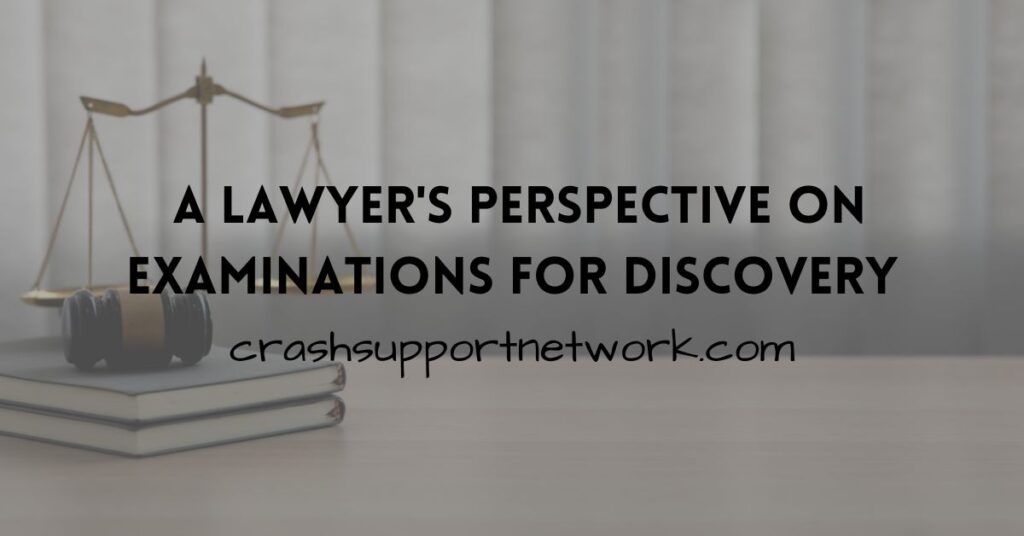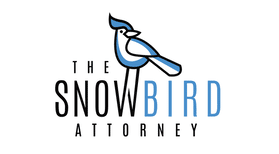
Examinations for Discovery are a necessary and critical step in your injury claim. A good injury lawyer will take the time to explain to you what discoveries are about and why you must go to a discovery. No injured plaintiff should ever walk into a discovery without understanding why they are there and why it is important for them to be there.
Examinations for discovery, or discoveries in shorthand, are a day or more of questions and answers. Parties to a lawsuit are required to attend and give evidence. This does not take place in a Court Room and there is no Judge. The parties and their lawyers meet in a conference room in an office building or law office. A Court Reporter administers an oath to each party to tell the truth and she then records or transcribes what is said. That transcript may then be used in your case and referred to at your Trial and any settlement discussions.
Telling the truth is key. You have taken an oath to tell the truth and truthful answers support your claims. Usually the lawyer for the defendant driver will take you through the happening of the crash, ask you questions about your injuries, your medical treatment, your job and work, and your relationships with your family. These questions must be relevant to your claims and this is a broad standard which should allow the defence lawyer some latitude to get to the details. It is your lawyer’s job to object to questions that are not relevant or to say if there is a specific rule why a question may not be answered. As you know, the real defendant in a car crash is the driver’s and/or car owner’s insurance company. That insurance company hires the defence lawyer and gives that lawyer his instructions. That insurance company has to know the details of your claims so they can decide how much money they may have to pay or if they have to pay at all. The insurance company may use the testimony that an injured plaintiff gives at her discovery to help set the reserves. Reserves are the exposure or money they may have to pay. Once the reserves are set, it is difficult to push them higher.
Sitting In
An injured plaintiff has the right to sit in and listen to the defendant driver’s discovery. That right is limited only if there is evidence that the injured plaintiff will physically or verbally intimidate the defendant driver or if they will tailor or change their evidence based on what they hear in that room. Some lawyers don’t push for this. My office does. I believe it is critical for my injured plaintiff to hear what the driver has to say. Some people find it cathartic to face the at-fault driver in a non-confrontational and non-threatening controlled environment. Many cases are settled without going to trial and this may be the only opportunity that my injured client has to look the at-fault driver in the eye. For some injured plaintiffs, this may be part of their healing process. My client’s presence often stops the driver and his lawyer from minimizing or trivializing their injuries, being dismissive or even rude. But it is very important that your lawyer knows you and how you feel. This is a talk you need to have with your lawyer. While some injured plaintiffs might welcome this encounter, other plaintiffs could find it terrifying. It is my job as the plaintiff’s lawyer to control the room and to control the environment. That may go a long way to easing my client’s worries.
The defence lawyer and defendant insurance company also use discoveries to size up the injured client and make a calculated guess how they may present at a trial and if they will even show up for trial at all. They factor in how my injured client will appear to a Judge and Jury. If my client is unlikely to show for their own trial, it is likely both the Judge and particularly the Jury may not be very sympathetic. Jurors leave their families and workplace for weeks on end. It may be a duty but it is also a real hardship to serve. If my injured plaintiff can’t or won’t sit through a three to four week trial, most Jurors will not be happy. If they have to sit there, they want the injured plaintiff who started the whole thing to be there too. If the defence lawyer and the insurance company size up my client at the discoveries and think they won’t attend every day of their trial, then their risk assessment is low and they won’t come through with a decent settlement.
Be Supportive
Recent court cases may also support the freedom of an injured plaintiff to bring a support person or emotional anchor with her to discovery. Our Ontario Superior Court has allowed a support person to attend with the injured plaintiff at her insurer’s exam. Lipovetsky v. Sun Life Assurance Company of Canada, 2018 ONSC 1664 (CanLII). If the importance of providing emotional support is significant enough to warrant attendance at an insurer’s exam, sometimes called an independent medical exam, then what bar is there to a support person attending discovery providing the injured plaintiff has legitimate need of her and the support person is prepared to silently provide that support without being disruptive or offering evidence. In practice, few defence lawyers would object to the presence of a support companion provided there were clear ground rules and that companion did not give evidence or coach the plaintiff during discovery. Some of my past injured plaintiffs have asked for a supportive family member or friend, who is not a party to the action, ie not a Family Law Act claimant, to quietly be present in the room. This has always been indulged by the defence bar.
Your Take Away
Your injury lawyer needs to be supportive and aware of your fears, worries and stress. But your lawyer also needs to explain to you the mechanics, tactics and the skinny behind these discoveries. Like many things in life, there is a balance to be struck. It is absolutely normal to have worries and concerns about your discovery. Tell your lawyer that you are nervous and always tell your lawyer if you are in pain during your discovery. Breaks must be available. You don’t have to sit for hours and suffer with pain.
Experienced injury lawyers know that discoveries are scary. But sometimes we forget. Don’t be afraid to remind your lawyer this is the first time you’ve been through a discovery.
For more information please visit: www.injurylawyerontario.net
Submitted by: Shelley M. Martin, Personal Injury Lawyer
Martin Law Office is a member of Crash Support Network and we thank them for their support.
This article is also featured in our 2019 Summer Issue of Sharing our Recovery
The Crash Support Network is a unique website consisting of an online support group, a Crash Survivor Blog written by a survivor, our Sharing Our Recovery Newsletter, informative articles and a Virtual Crash Memorial. Our website is based on relationship-building and puts the needs of survivors first by creating a helpful resource for victims and survivors of motor vehicle crashes.



